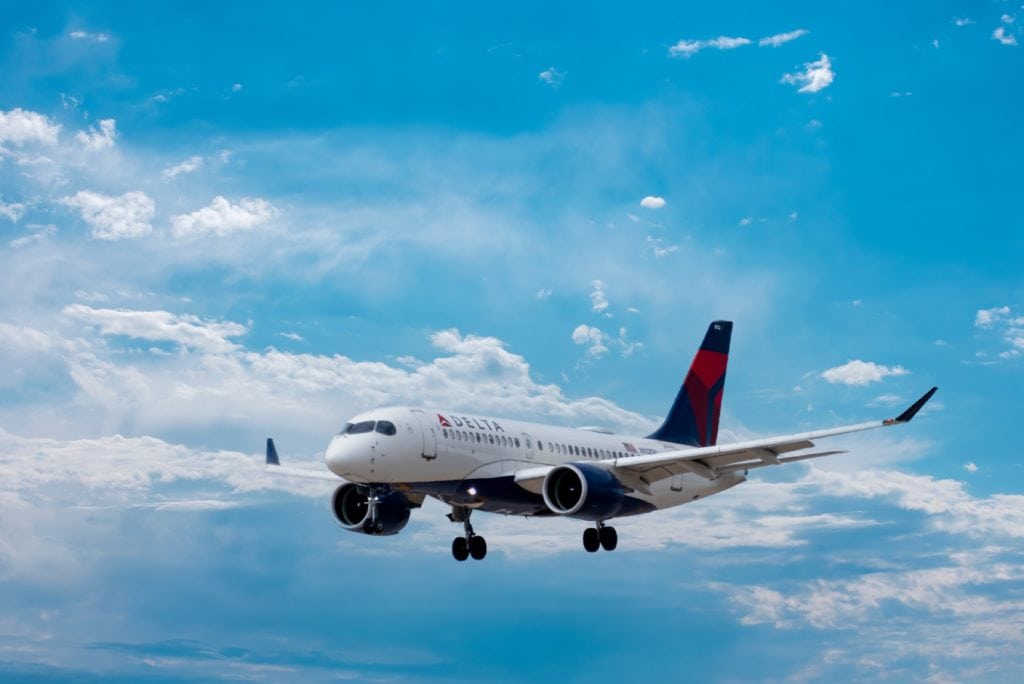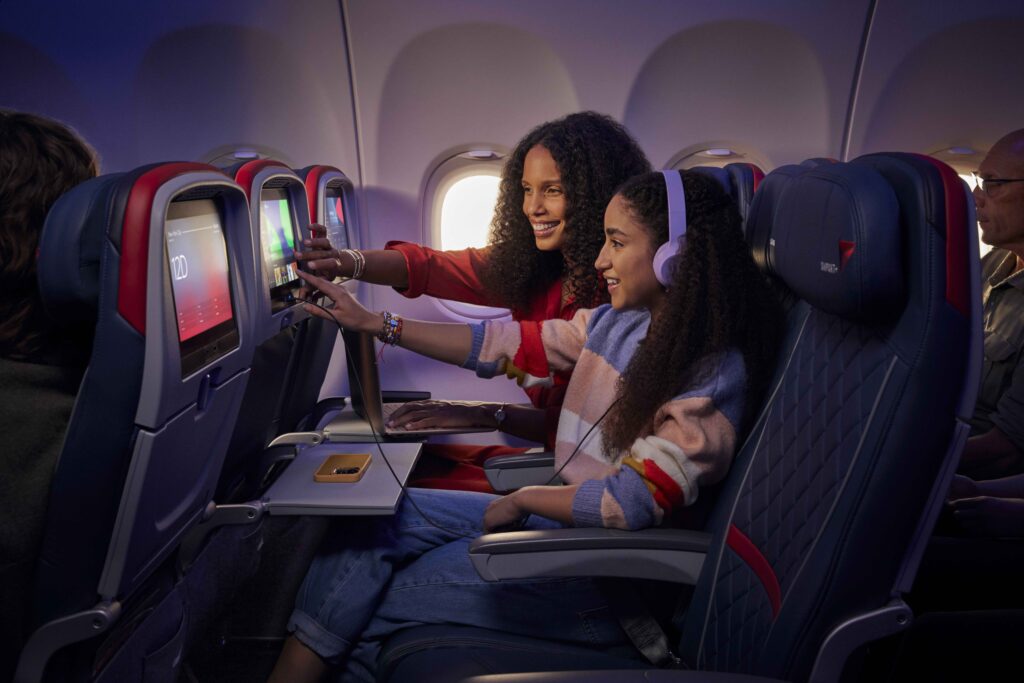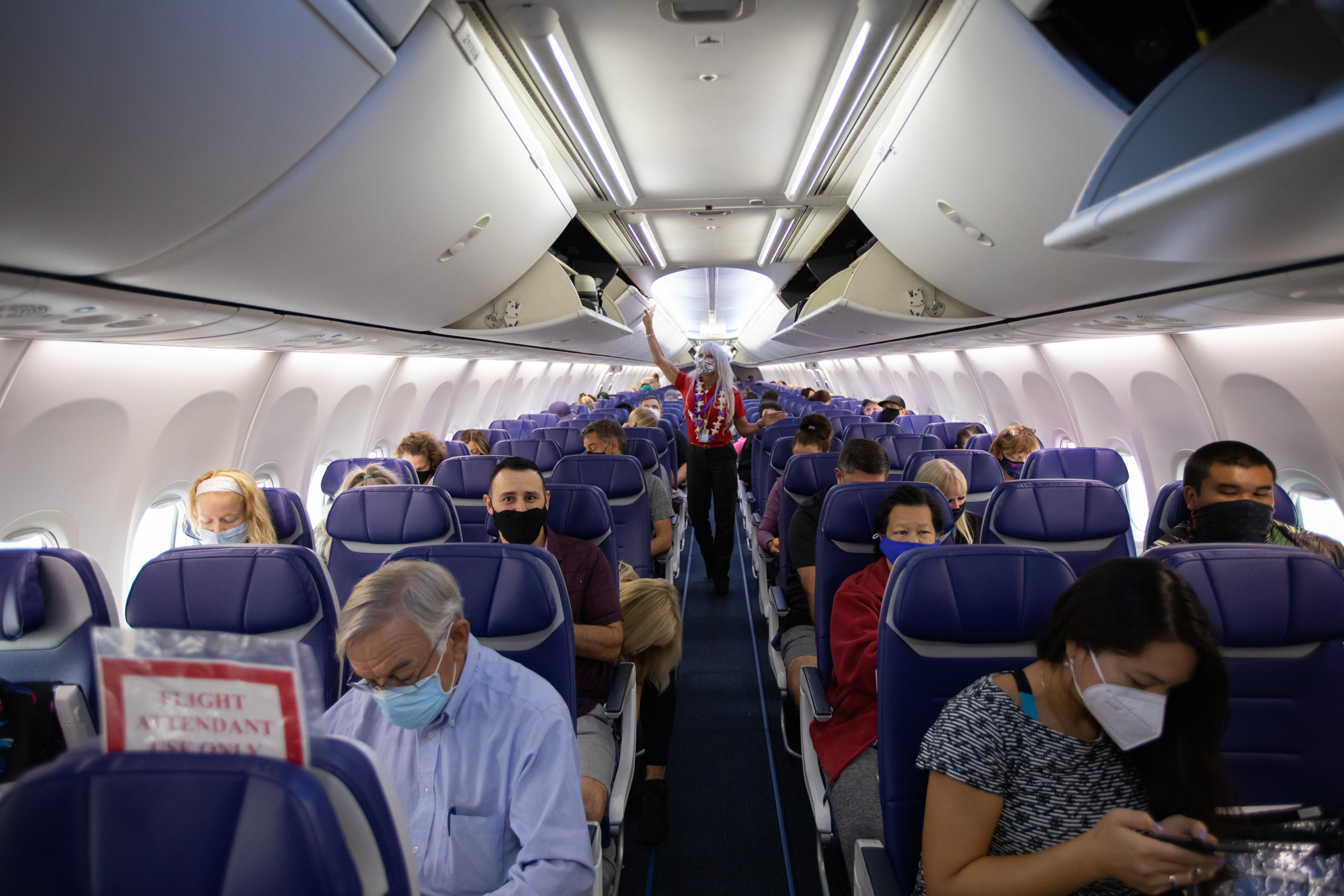Delta Reports Business Travelers Boosted Revenues in 2024
The airline also benefited from strong demand for its rebuilt Latin American and Pacific networks and a lack of Boeing 737 Max aircraft
by Lauren Smith
April 12, 2024

Photo: Boeing 767-300ER. Delta One. Courtesy of Delta
Delta Air Lines has achieved record earnings of $12.6 billion in the first quarter of 2024, an impressive figure for a usually slow period for airlines. The boost in revenue was driven by an increase in business travel as the world continues to recover from the pandemic.
Delta’s quarterly report, released this week, showed a 14 percent jump in corporate ticket sales in the first three months of the year, with large companies in the technology, financial services, and customer services sectors leading the way.

Photo: Delta, Airbus A220-100. Courtesy of Trac Vu / Unsplash
The airline expects more passengers to travel on their employers’ tabs next quarter. According to a survey conducted by Delta, 90 percent of companies that responded said they plan to increase travel during the spring.
However, not all business travelers are using expense accounts. Some travel on their dime, looking for the legroom, privacy, and extra benefits of premium seating options. Delta has reported a 10% increase in revenue from all premium seating options year-on-year.
Delta has also broken records for revenue from domestic travel, which saw a 5 percent increase from last year. The airline is not stopping there and is working on rebuilding the regional networks that were partly dismantled in response to the pandemic and subsequent pilot shortage.
Delta’s president, Glen Hauenstein, told analysts in a call that they plan to remobilize around 100 regional jets that are currently either underutilized or mothballed and add more seats at core hubs such as Atlanta (ATL), Detroit (DTW), and Minneapolis-St Paul (MSP).
“Coming out of COVID, we had to allocate the resources we had available,” Hauenstein said. “And those resources went to our once-in-a-lifetime opportunities to take leading positions in places like Boston (BOS) and Los Angeles (LAX) at the expense of rebuilding our core hubs, and we’re still not done building our core hubs.”
International travel sales rose even more steeply, by 12 percent, over the winter, suggesting the post-pandemic travel boom hasn’t yet ebbed.
Network Growth
Much of that growth was concentrated in Latin America and the Pacific, where Delta has been reestablishing its presence. The airline operated its largest-ever winter schedule in Latin America and the Caribbean, increasing frequencies of flights to nine destinations in the region, including Guatemala (GUA), Liberia, Costa Rica (LIR), and San Juan, Puerto Rico (SJU).

Photo: Courtesy of Delta
Delta also launched a daily flight to Auckland, New Zealand (AKL) in October, growing a transpacific network out of LAX that now includes a thrice weekly flight to Tahiti (PPT) and twice daily departures to Sydney (SYD).
In comparison, growth in the transatlantic market has been “muted,” Hauenstein said, but Delta expects strong demand for flights to Europe this summer and is offering more seats than last summer and at level prices.
Olympics? Not a Priority
However, the carrier isn’t banking on the Paris Olympics, likely dampening business travel to Paris (CDG). “Generally, the Olympics are not good for airline revenues,” Hauenstein said.
Great special Olympic livery on this New Delta Airbus A350 #airbus #A350 #Deltaairlines #avgeeks #TEAMUSA pic.twitter.com/v50IagVFMN
— Eurospot (@cliper31) April 5, 2024
Delta has also reaped rewards from its co-branded credit card with American Express, drawing record applications and seeing loyalty revenue rise 12 percent. The carrier received £1.7 billion in remuneration for the credit card between January and March.
The carrier attributed some of its strong sales to its modern aircraft, premium cabin perks, and the continued roll-out of free inflight WiFi, currently a unique offer among the Big Four U.S. carriers.
Top Reliability
According to CEO Ed Bastian, Delta also achieved its “best operational reliability” in its history. It operated 26 “cancel-free, brand-perfect days” in the first quarter to lead the industry in the completion factor (the percentage of scheduled flights completed) and on-time performance.
In contrast, rivals were forced to cancel flights when the FAA ordered the grounding and inspection of Boeing 737 MAX jets after the door of an Alaska Airlines jet ripped off mid-flight in early January.
Delta doesn’t operate any 737 MAX planes, although it has ordered 100 737 MAX 10 jets. Bastian now expects that the delivery of those plans, initially scheduled to begin next year, will be delayed.
“We’re not expecting to see the MAX 10 for at least two to three years, and I don’t think anyone can tell you exactly when it’s going to arrive,” Bastian said. He added that he still has confidence in the troubled aircraft manufacturer.

Photo: Ed Bastian, CEO Delta Air Lines. Courtesy of ©2023 Rank Studios
Delta made a $37 million profit during the first quarter, a sharp turnaround from the $363 million loss it registered at the beginning of 2023.
It also expects the strong performance to continue. “Year to date, we’ve seen the 11 highest sales days in our company’s history,” Bastian said. “That’s a strong predictor that the spring and summer season is going to be quite healthy on the travel side.”
Other airlines may not be seeing the sun. While Delta is the first to report its first-quarter results for 2024, Bastian has predicted it will be the “only profitable major airline during the quarter.”



